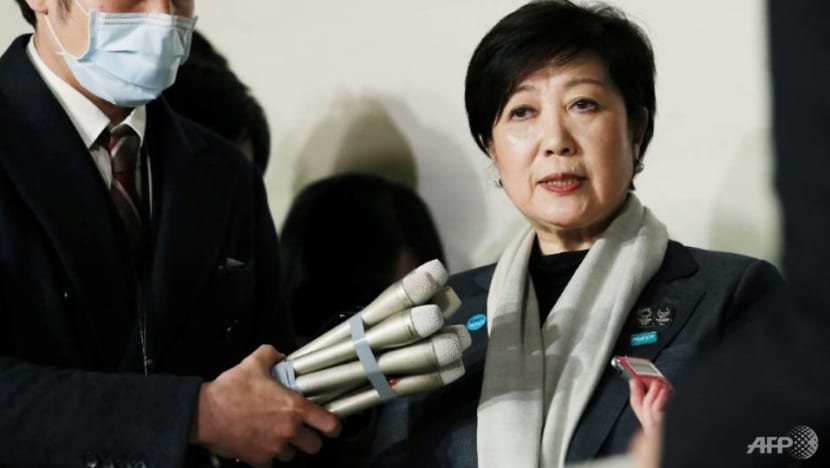Tokyo 'has come alive again' as Japan sheds COVID-19 curbs, says governor Koike
Ms Koike has been hailed as one of the most powerful women in Japanese politics, and is considered a contender to one day be the first female prime minister of Japan.

TOKYO: Tokyo is buzzing again, with travellers returning to the Japanese capital as the country seeks to downgrade COVID-19 to the same category as seasonal flu from May, said its governor Yuriko Koike.
At the height of the COVID-19 pandemic, Ms Koike, the first woman to lead Japan's capital, went for tougher movement restriction measures than what national leaders would take.
She called for a state of emergency, and asked the public to restrict movement and observe good hygiene practices during the crisis.
“Tokyo is a city with a population of 14 million and we have successfully suppressed the pandemic, with everyone contributing,” recalled the 70-year-old of her experience leading the city out of the pandemic.
“Tourists have also returned in a huge way and the city has come alive again.”
DOWNGRADING COVID-19'S STATUS
Since March, individuals have been able to decide for themselves whether to wear a mask as the country seeks to downgrade COVID-19’s status.
“It’s been three years since the WHO (World Health Organization) declared COVID-19 a pandemic,” said Ms Koike in an interview with CNA.
“(My job) was all about ‘don't do this, don't do that’.”
Ms Koike has often been hailed as one of the most powerful women in Japanese politics.
The two-term governor of Tokyo was once described by the late Japanese prime minister Shinzo Abe as the “joker” card in a card game, for her ability to influence political outcomes in an unpredictable way.
Related:
Even as Tokyo is putting COVID-19 behind it, Ms Koike has been making headlines recently over her energy policy.
Just a few months ago, she famously urged Tokyo residents to wear turtleneck jumpers to cut down on energy bills.
The former minister of the environment is also pushing for hydrogen and solar power as solutions to the capital energy dilemma.
From 2025, she will require all new homes in the city to have solar panels.
A pressing issue that she has to tackle is a potential power crunch, as Tokyo heads into the hot summer months.
Last summer, large parts of Japan were forced to switch to power-saving mode by turning off non-essential appliances due to a severe power shortage.
Authorities have already warned of a repeat.
“We will have to suppress our many economic activities. This is negative. But on the other hand, the energy crisis pushes us to come up with creative ways to conserve energy.”
Related:
PROMOTING WOMEN EMPOWERMENT
Despite her own success, the newscaster-turned-politician laments the lack of progress in women empowerment in Japan.
“At the heart of the problem is the absence of women in situations requiring decision-making, and there are very few men who are willing to support the empowerment of women,” said Ms Koike.
“Tokyo provides opportunities (for women) to make decisions, including various committees.”
As of last August, more than 40 per cent of the members of these committees are women, she added.
“That’s how we reflect the voices of women, nurture women experts and make the most of their talents.”
When it comes to her next political move, Ms Koike, who was first elected to parliament in 1992, is keeping her cards close to her chest.
She has not indicated if she will seek a third term as Tokyo’s governor when her current term ends in 2024, even as she repeatedly denies intentions of returning to national politics.
















